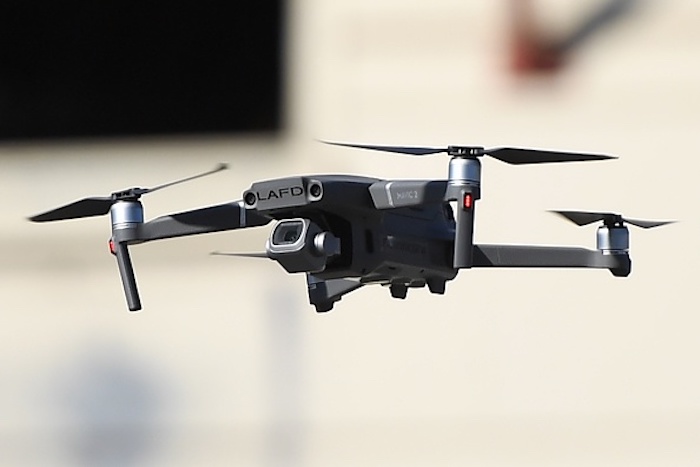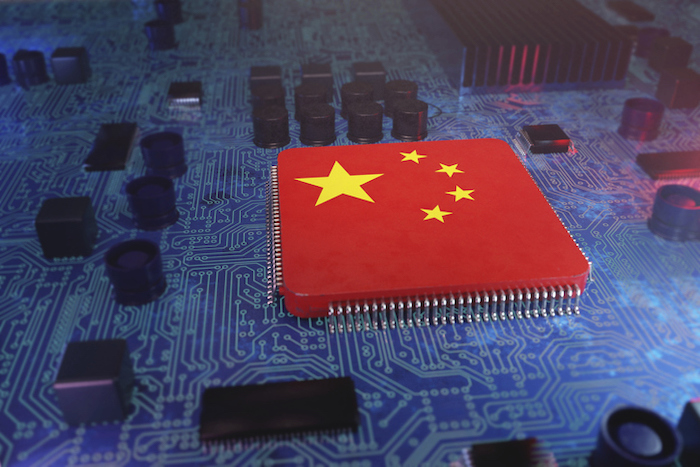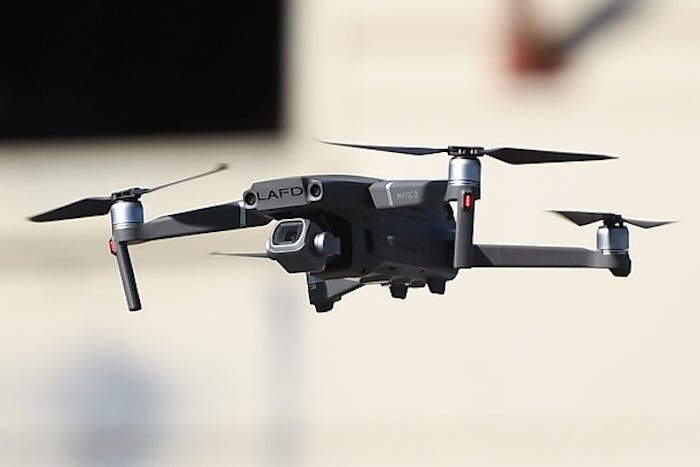Deep Dive: Chinese drones rule US skies

What’s new: Heritage’s Lora Ries (@lora_ries) and JV Venable (@JVVenable) have published a new report explaining China’s dominance of the US drone market.
Why this matters: The report, Chinese-Made Drones: A Direct Threat Whose Use Should Be Curtailed, explains current and emerging drone technologies, the data threats of Chinese drone manufacturers, and what the US should do to realize the benefits of this critical technology while mitigating foreign threats to American information.
Key Points (selected from the report):
The vast majority of commercial unmanned aerial systems (UAS) used in the U.S. are manufactured in China, and their operating systems are impressive and worrisome.
The technology is advancing rapidly, and the capabilities currently found in large drones is now being miniaturized and will likely migrate to smaller drones in the near term, which will significantly broaden the threat.
However, the understanding of the risk and/or the willingness for state and local agencies to thwart those drones from collecting sensitive data is limited—at best.
The United States government needs to address and stop the collection and transfer of data by drones to any foreign-based corporation before this incredible capability is turned against us.
Stats and facts:
According to the Federal Aviation Administration (FAA), which registers drones in the U.S., there were fewer than 50,000 commercial drones in operation at the end of 2016. Today, there are more than 385,000 and the agency says that will grow to 835,000+ by 2023, an average annual growth rate of 25 percent.
As of March 2020, 1,578 state and local police, sheriff, fire, and emergency services agencies in the U.S. have acquired drones, an increase of 500 agencies since May 2018.
Just over 70 percent of those agencies are law enforcement, 20 percent are fire and rescue, and 10 percent are emergency management organizations.
The leading Chinese drone manufacturer of small drones, D-Mada Jiang Innovations (DJI), donated 100 drones to 45 law enforcement and first responder organizations across 22 states in a good will “disaster relief program” to combat the COVID-19 crisis on April 1, 2020.
In 2019, $1.2 billion were invested in the global drone industry. That year, a single, privately owned Chinese drone manufacturer, DJI, held approximately 70 percent of the global consumer drone market.
Of the top 10 drone manufacturers that supply the U.S. market, DJI towers over the others with nearly 77 percent of market share.
Policy recommendations:
The Administration should place DJI on the US Entity List.
The Administration should work with Congress to pass legislation that will stop the unauthorized collection and transfer of data by a Chinese drone company or subsidiary.
The DOJ and the DHS, using their state and local committees, should engage state, city, and county agencies.
The Departments of Commerce, Treasury, Defense, and Homeland Security should leverage Defense Production Act authorities to encourage technological growth and price-point reduction in the US market for government UAS use.
The DOJ, DHS, and the DOD should use and/or expand their grant programs to accelerate competition among U.S. manufacturers.
What we’re thinking: The CCP’s aggressive data collection makes this a clear threat. The federal government recognizes this, and is putting the brakes on procuring or using such risky technology—but the understanding of the risk and/or the willingness of state and local agencies to thwart those drones from collecting sensitive data is limited at best. It is time for state and local agencies to be informed of, and recognize, the threats involved in using Chinese-manufactured drones and immediately move to mitigate them.
Also, the Pentagon’s Defense Innovation Unit just announced that it will make five US-built drone configurations that are secure for government use beginning in September.
Geopolitical implications of the chip race

What’s new: I (Klon) have a new article (paywall) explaining how the semiconductor industry is now a critical tool in geopolitics.
Why this matters: Semiconductors (commonly known as microprocessors, microchips, or chips) are now a constrained resource essential to a nation’s economic and technological development. Both the U.S. and Chinese governments are currently building up their manufacturing capacity for strategic aims.
Key points:
Advanced semiconductors are the beating heart of personal computers, smartphones, vehicles, digital assistants, Internet of Things (IoT) devices, and virtually every other electronic device.
Any nation seeking to ensure its ability to realize and benefit from these technologies must think about how it will guarantee access to these chips – even in the face of economic or geopolitical disruption.
The Chinese Communist Party (CCP) has concluded that having a domestic capability to design and manufacture critical technologies is a prerequisite for realizing their national ambitions.
Washington, likewise, understands that making its own semiconductor supply chains more resilient is essential for its national security and economic competitiveness, as is stopping (or at least slowing) the development of domestic Chinese capacity for advanced chip design and manufacturing.
Possible scenario one — China Constrained: The first, highly probable scenario is that China will be constrained in the near- to mid-term by its dependency on foreign chip manufacturing.
Currently, Beijing’s domestic chips are assessed to be at least one generation behind Western state-of-the-art chips.
In 2015, 2016, and 2018, Chinese attempts to acquire foreign chip companies or technologies were blocked by the U.S. or its allies.
Similar measures are likely to continue for the foreseeable future and will center around preventing Beijing’s access to critical semiconductor manufacturing equipment like photolithography machines, which are produced globally by a single company in the Netherlands.
Possible scenario two — China Overcomes the West: The second scenario is a low probability in the near-term but becomes more likely as time goes on. Specifically, China could thwart Western opposition by leveraging its considerable geopolitical and economic influence.
While Chinese domestic chips appear to be lagging in sophistication, national champions like Baidu, Alibaba, Tencent, and others are keen on ensuring their access to cutting-edge chips and are likely actively supporting the CCP’s continuing investments.
Several foreign leaders in semiconductor technology have joined Chinese companies and will likely push their efforts forward, including Yukio Sakamoto, the former CEO of Japan’s Elpida Memory, and Charles Kao, often referred to as the “godfather” of Taiwan’s chip industry.
It is also possible that China could thwart Western opposition by leveraging its considerable influence to convince non-Western companies to continue supplying essential goods and services. The CCP is well versed in using coercive economic and political strategies to get what it wants.
US wants “clean” networks

What’s new: Secretary Mike Pompeo announced earlier this month a new strategy aimed at “guarding our citizens’ privacy and our companies’ most sensitive information from aggressive intrusions by malign actors, such as the Chinese Communist Party (CCP).”
Why this matters: This effort builds on the Administration’s 5G Clean Path initiative, announced on April 29, 2020, that seeks to secure all 5G data traveling into U.S. diplomatic facilities overseas and within the US.
Key points: The plan focuses on five “lines of effort.”
Clean Carriers: Untrusted People’s Republic of China (PRC) carriers will not be allowed to link to American telecommunications networks — preventing them from providing international telecommunications services to and from the US.
Clean Store: Continually remove untrusted applications from US mobile app stores so that Americans’ most sensitive personal and business information is protected from exploitation and theft by Beijing.
Clean Apps: Prevent PRC smartphone makers from pre-installing –or otherwise making available for download – trusted apps on their phones or making them available in their app store. This would include the pre-installation of US apps on phones made by Huawei and ZTE.
Clean Cloud: Prevent Americans’ most sensitive personal and business information from being stored or processed on Chinese cloud-based systems, including those provided by Alibaba, Baidu, and Tencent.
Clean Cable: Prevent China from intercepting or subverting undersea cables connecting the US to the global internet.
What we’re thinking: Of course this makes sense. That is not to say, however, that this is not disruptive and a fundamental shift in the US strategy for securing its citizens and interests. There are very real economic and other tradeoffs with this posture; but, that’s always the case and there’s simply no getting around the reality that (yep, we’re going to say it again) securing nations means securing networks.
British grading AI gets an “F”

What’s new: The British government has scrapped an effort to use computer-generated scores to replace student exams that were canceled due to the coronavirus, according to The New York Times.
Why this matters: Governments around the world are increasingly automating government services and this is an example of how these choices can have significant, unintended consequences.
Key points:
When the COVID-19 pandemic hit, British education leaders turned to a software model to replace the nation’s cancelled “A-levels” exams — tests that have a significant impact on a student’s future education and employment opportunities.
Nearly 40 percent of students saw their grades drop in the computer-generated scores, which factored a student’s previous academic performance (including on “mock” exams) but also used a school’s past performance on the tests.
Government officials said the algorithm would make the system more “fair” by removing “bias” and balancing “inflated scores” given by some teachers.
The government, however, has since thrown out the scores in the wake of public protests against the computer-generated scores.
This development comes shortly after the government announced that it would no longer use another algorithm for weighing visa applications after law suits were filed alleging it was discriminatory.
What we’re thinking: We’re all about innovation around here. But, just because it is an “algorithm” doesn’t make it infallible or trustworthy. Models and data matter. Also, even if the grading data was defensible, you still have to have public legitimacy if you want public support. Get used to these stories because more will be coming our way.
Facebook brings down the dislike boom

What’s new: Facebook has announced a series of actions on its Facebook Pages, Groups, and on Instagram accounts linked with anarchist groups that support violent acts amidst protests, US-based militia organizations, and QAnon.
Why this matters: The social media giant continues to stand athwart the internet, yelling, “Stop!”
Key points:
The folks at 1 Hacker Way have booted 10,000 Instagram accounts, 1,950 groups, and 440 pages tied to QAnon — a conspiracy group that claims a global network of devil-worshiping pedophiles is trying to take down the Trump administration.
Activity on the largest QAnon Facebook groups has ballooned 200-300% in the last six months, according to a NYT analysis.
Nearly 1,000 other potentially violent organizations were also taken down, including the far-left antifa group.
What we’re thinking: These actions are well within the company’s established community standards, but they’ll still take heat over this. Critics on the political left will say these moves are too little too late while some on the political right will claim this is another example of Big Tech constraining free speech. But don’t feel too bad for Facebook, they’ve fought really hard to be this influential and this is the price of success.







Please note that we at The Dispatch hold ourselves, our work, and our commenters to a higher standard than other places on the internet. We welcome comments that foster genuine debate or discussion—including comments critical of us or our work—but responses that include ad hominem attacks on fellow Dispatch members or are intended to stoke fear and anger may be moderated.
With your membership, you only have the ability to comment on The Morning Dispatch articles. Consider upgrading to join the conversation everywhere.